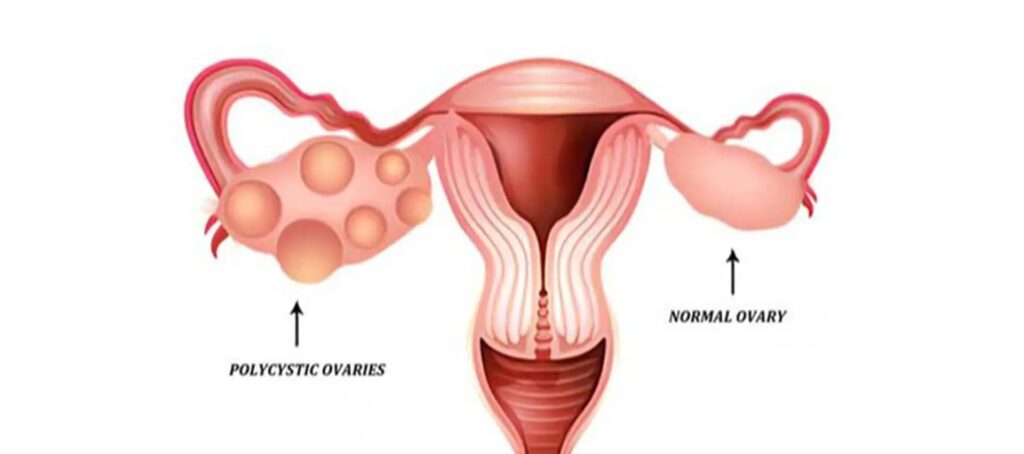
🔹 What is PCOD?
PCOD stands for Polycystic Ovarian Disease. It is a hormonal disorder common among women of reproductive age. In PCOD, the ovaries produce higher-than-normal amounts of androgens (male hormones), which can lead to various symptoms, including irregular periods, acne, weight gain, and multiple small cysts in the ovaries.
It’s sometimes confused with PCOS (Polycystic Ovary Syndrome), which is a more severe metabolic disorder. However, PCOD is more about ovarian dysfunction.
🔹 What is PCOD?
PCOD stands for Polycystic Ovarian Disease. It is a hormonal disorder common among women of reproductive age. In PCOD, the ovaries produce higher-than-normal amounts of androgens (male hormones), which can lead to various symptoms, including irregular periods, acne, weight gain, and multiple small cysts in the ovaries.
It’s sometimes confused with PCOS (Polycystic Ovary Syndrome), which is a more severe metabolic disorder. However, PCOD is more about ovarian dysfunction.
🔹 Causes of PCOD
The exact cause isn’t fully understood, but several factors can contribute:
- Hormonal imbalance – Increased androgens disrupt ovulation.
- Insulin resistance – Leads to excess insulin, which stimulates androgen production.
- Genetics – Tends to run in families.
- Lifestyle factors – Poor diet, lack of exercise, and stress.
🔹 Common Symptoms
- Irregular or missed periods
- Weight gain or difficulty losing weight
- Acne or oily skin
- Excess facial or body hair (hirsutism)
- Thinning scalp hair
- Ovarian cysts
- Infertility
- Mood swings or depression
🔹 Diagnosis
Diagnosis is based on:
- Medical history and symptoms
- Ultrasound – To check for cysts in the ovaries
- Blood tests – To measure hormone levels (testosterone, LH, FSH, insulin)
🔹 Treatment Options
While there’s no permanent cure, symptoms can be managed with:
1. Lifestyle changes
- Healthy diet (low in refined carbs and sugar)
- Regular exercise
- Stress reduction
2. Medications
- Hormonal birth control – To regulate periods and reduce androgens
- Metformin – For insulin resistance
- Anti-androgens – To reduce acne and hair growth
3. Fertility treatments
- For women trying to conceive (like Clomiphene, Letrozole, or IVF)
🔹 Difference Between PCOD and PCOS
| Feature | PCOD | PCOS |
|---|---|---|
| Severity | Less severe | More severe metabolic disorder |
| Ovulation | Often still occurs | Rare or absent |
| Fertility | Generally maintained | Often impaired |
| Insulin resistance | Less common | More common |
| Long-term risk | Lower | Higher risk of diabetes, heart issues |
🔹 Long-term Risks if Untreated
- Type 2 diabetes
- High blood pressure
- High cholesterol
- Endometrial cancer
- Infertility
- Depression and anxiety

